Installing Cedar Shingles
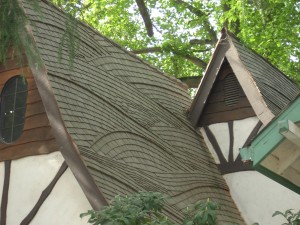
For many years the cedar shingles have been used on rooftops as protection and to give a rustic look to our homes.
As a professional shingler, cedar shingles and shakes have been one of my favorite types of roofing. The cedar shingle is the main subject for today's blog and as you can see in the picture, it shows a custom shingle design. It is an example of what can be done with an imagination and maybe a case of beer. I am just kidding, and mean no disrespect, as this type of design is much harder to do than it looks. Some like the uniqueness of this thatch or wave type roofing and some do not. This customer did and was willing to pay for this look and as you can imagine, it costs a bit more for the craftsmanship and extra materials to do it. It is truly an art. This roof can be found in Sacramento, California near South Land Park.
 Cedar shingles are typically installed over spaced sheathing. 1 x 4-inch Douglas fir, and is what I am familiar with. I normally have applied them directly to the sheathing. Applying the shingles this way provides a breathable roof and will help the life span of the shingles, allowing them to dry and not to rot. This roof is called a 3-ply system, meaning simply there are always triple layers of shingles on the entire roof system. It is also acceptable to use an Asphalt Saturated Felt as an underlayment over plywood. You would never interlay the felt with shingles like a shake roof. Please check your local building codes for the acceptable application. In both cases, a #30 felt should be installed under the valleys and eaves, plus 2 feet past the exterior wall. C
Cedar shingles are typically installed over spaced sheathing. 1 x 4-inch Douglas fir, and is what I am familiar with. I normally have applied them directly to the sheathing. Applying the shingles this way provides a breathable roof and will help the life span of the shingles, allowing them to dry and not to rot. This roof is called a 3-ply system, meaning simply there are always triple layers of shingles on the entire roof system. It is also acceptable to use an Asphalt Saturated Felt as an underlayment over plywood. You would never interlay the felt with shingles like a shake roof. Please check your local building codes for the acceptable application. In both cases, a #30 felt should be installed under the valleys and eaves, plus 2 feet past the exterior wall. C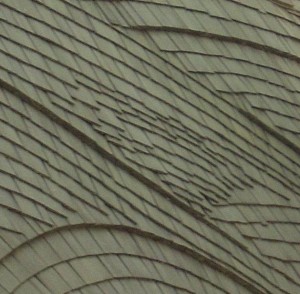 I recommend a five-inch exposure and Cedar Bureau suggest a 1/4″ to 3/8″ gap or key way between each shingle. This will allow for expansion in the rainy season without buckling.
I recommend a five-inch exposure and Cedar Bureau suggest a 1/4″ to 3/8″ gap or key way between each shingle. This will allow for expansion in the rainy season without buckling.
In the picture, the shingle courses are boosted or stacked for appearance but never exposed over the five inches.
Nails used, should be long enough to protrude through the sheathing or into it 3/4 of an inch and should be a nail that will not bleed and stain the shingles. I used to use my first knuckle on my finger as a gauge for the rake overhang. It should be at least one inch away from the shingle molding and the bottom course is to be 1.5 inches, overhanging the fascia board. Never having a side flap under 2 inches and avoiding the key ways lining up for two courses above, will ensure a long-lasting roof. Most cedar-shingled roofs last 15-20 years and then are found to be covered over by shakes or even composition shingle. Just today the company I estimate for, tore off a roof in downtown Sacramento that was a cedar shingle roof, covered by two composition shingle roofs.
Never paint a cedar roof, as the natural resins fight against decay. The most wood roof now, because of codes, must have a fire-retardant applied. Because of this expense we see less and less of the cedar type roofs. I recently spoke with Brooke Meeker of Anbrook Industries LTD. She runs a Cedar Shake and Shingle Mill in Canada and she said, “The cedar roofing industry is not what it used to be. The declining market for cedar shakes, especially in California, which was a huge part of the market share, has killed the business, but it is still is very strong for cedar sidewall coverings especially on the east coast.” The Meeker family founded by Toke Meeker in the 40’s has produced thousands and thousands of cedar shakes and shingle roofs on homes in Canada and the United States. I hope this industry continues as long as I am alive because I really enjoy seeing a wood roof. From the smell and look of a brand new cedar roof, to the aged green and grey patina. These roofs are beautiful.
Have a question? AskARoofer.
Find your local roofing contractor in the RoofersCoffeeShop® Contractor Directory.
Disclaimer: The information provided on AskARoofer.com or information sent by emails is the opinion of the writers. It is the responsibility of the reader to check for accuracy in one's own jurisdiction, as there are different codes and restrictions for different parts of the country. AskARoofer.com does not accept any liability for the use of information on this website or email. AskARoofer.com has no controls over product failures, installation, or climate conditions that may change the roofing process in your area. Our information is in general to our area and cannot be the same as your local town or state. It is advised to seek the local Building Department, Licensed Contractor and local Product Representative for proper installation requirements and code enforcement when installing a new roof.

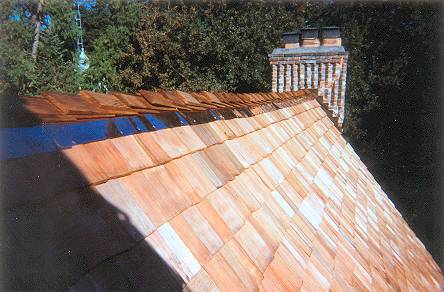
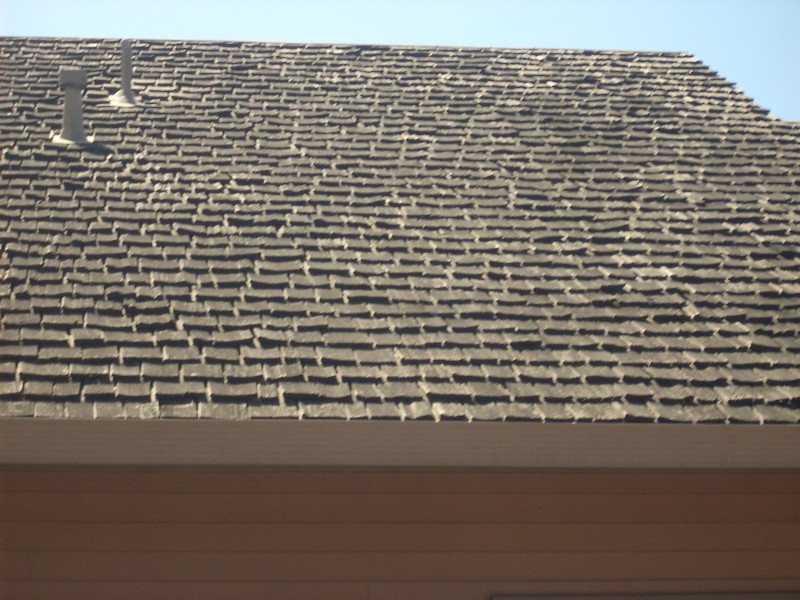
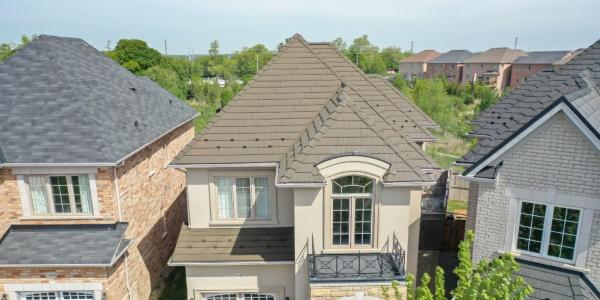



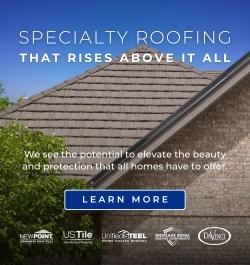
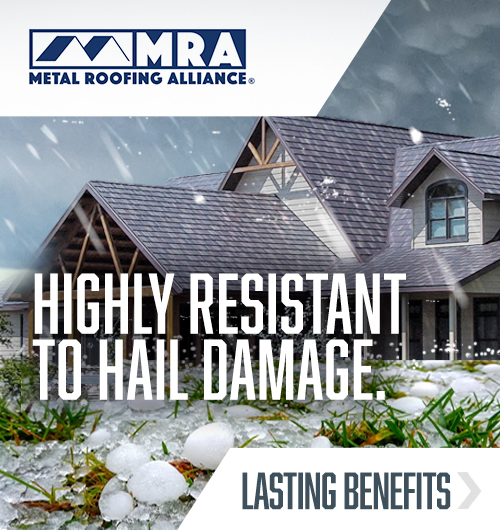

Comments
Leave a Reply
Have an account? Login to leave a comment!
Sign In